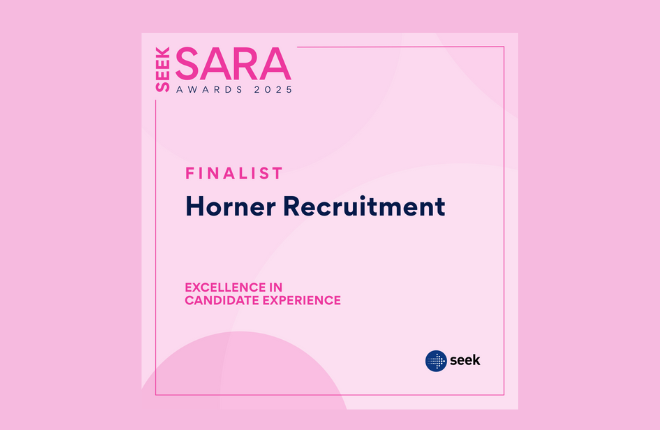Soft Skills Increasing in Demand

“We just need someone with the right attitude and that will fit our culture. We can train them on the technical skills.”
This is a common request we hear from our clients which reflects the current trend of soft skills being increasingly in demand.
According to LinkedIn’s Global Talent Trends 2019 Report, soft skills have always been important however they are increasingly vital today. The rise of automation and artificial intelligence means that hard skills alone are no longer enough to be successful.
What are soft skills?
As defined by Indeed job site, “soft skills include any skill that can be classified as a personality trait or habit. Interpersonal skills and communication skills are more specific categories of soft skills that many employers look for in job candidates.”
The top five soft skills in 2019, as defined by LinkedIn, are
1. Creativity
2. Persuasion
3. Collaboration
4. Adaptability
5. Time Management
Other important soft skills include communication, conflict resolution, critical thinking, dependability, empathy, flexibility and problem solving.
The soft skills required will change depending on the industry, organisation’s culture and the particular role.
For example, soft skills required for a Warehouse Worker could include dependability, communication, adaptability and collaboration. Whilst a role in Management would require all the top soft skills of creativity, persuasion, collaboration, adaptability and time management along with problem solving, empathy and critical thinking.
How important are soft skills?
According to the LinkedIn report, the results showed that it’s more important to hire for:
- soft skills = 30%
- soft and hard skills = 62%
- hard skills only = 8%
How to assess soft skills?
Assessing soft skills can be more difficult than assessing hard skills. Here are 5 ways Horner may assess the soft skills of a candidate:
1. Screening
Horner utilises customised phone screening templates to determine suitability to a role. Relative to the selection criteria of each vacancy, an initial assessment is made regarding soft skills and cultural fit along with proven experience availability and remuneration expectations. Candidates can sometimes highlight their relevant soft skills in the resume, cover letter and LinkedIn profile.
2. Interviewing
Horner utilises behaviour based interview technique and situational questions to evaluate candidates. Behaviour based interviews use past behaviour as a predictor of future performance. Generally the questions will start with “Tell about a time when…” Candidates are asked to provide specific examples of their experiences as a way of demonstrating they can meet the critical requirements (pre-determined competencies) of a job.
Situational interview questions are hypothetical. Situational questions are based on what a candidate would be likely to face if they landed the job such as “What would you do if you were assigned multiple tasks with the same deadline?” to assess adaptability.
The candidate’s body language, eye contact and communication skills in the interview as well as how they conduct themselves through the recruitment process also allow soft skills to be assessed.
3. Psychometric testing
Psychometric testing can be introduced within the screening and selection process in order to gain an understanding of a candidate’s soft skills, attributes, cognitive abilities and work style preferences and provides the tools to select people who fit into the company’s culture. Psychometric testing evaluates several factors such as emotional control, stress tolerance, self confidence, adaptability, independence, responsibility, initiative, competitiveness, social awareness, empathy and influence.
4. Group Assessment / Inductions
Seeing how a candidate interacts and conducts themselves in a group situation also provides an opportunity to assess soft skills such as communication, collaboration, conflict resolution and emotional intelligence.
5. Reference Checking
Conducting a thorough reference check is vital to assess soft skills. Whilst hard skills are fairly straight forward to assess, soft skills are more subjective. Horner uses a comprehensive 40 question reference check which is completed with previous direct report managers to address all areas of a person’s history including skills verification, attitude and qualifications/licences. The format also allows for additional structured questions addressing specific competencies and/or specific questions addressing concerns raised during the interview.
To find out how Horner can assist you to define and assess soft skills for your next recruitment hire, contact your Horner Consultant or send us an enquiry today.

 Job Seekers
Job Seekers Resources
Resources Timesheets
Timesheets Submit a CV
Submit a CV Login
Login Temporary Staffing Solutions
Temporary Staffing Solutions Permanent Recruitment Solutions
Permanent Recruitment Solutions Executive Search
Executive Search Payroll Services
Payroll Services Modular Recruitment Services
Modular Recruitment Services Employer Resources
Employer Resources HR Services
HR Services WHS Consulting
WHS Consulting Outplacement / Career Transition
Outplacement / Career Transition Accounting and Finance
Accounting and Finance Business Support
Business Support Community Services
Community Services Customer Service
Customer Service Engineering
Engineering Events and Exhibitions
Events and Exhibitions Government
Government Healthcare
Healthcare Labour Hire
Labour Hire Manufacturing
Manufacturing Not-for-profit
Not-for-profit Sales and Marketing
Sales and Marketing Warehousing and Logistics
Warehousing and Logistics About us
About us Meet the Team
Meet the Team Blog
Blog Community
Community Join the Team
Join the Team Candidate Timesheet
and Portal Information
Candidate Timesheet
and Portal Information Blog
Blog Join the Team
Join the Team Payroll Services
Payroll Services Timesheets
Timesheets Customer Service
Customer Service Engineering
Engineering Warehousing & Logistics
Warehousing & Logistics

